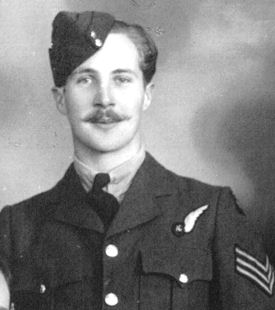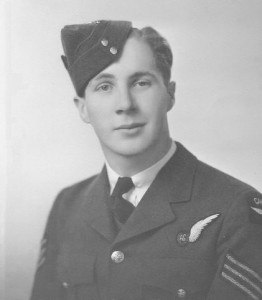URQUHART, David Smith
- 19 years
- Canada
- Flight Sergeant
- R/119542
- Wellington Mk. III, BJ657
- 6th December 1942
- Allied Aircrew Memorial, Guernsey
His father and mother were born in Scotland. He had a younger brother, Charles Arthur Ian who also served in WW II.
David completed Grade 11 in High School and was a farm hand from 1940-1941. His hobbies included water colour painting, swimming, hockey and dancing. He was engaged to be married when he went overseas.
He attested in Winnipeg on July 19, 1941; was 5 feet 7 inches in height and had a fair complexion, blue eyes and brown hair. At the time of David’s attestation, his father was deceased.
On 20 December 1941, LAC Urquhart was posted back to No. 3 Bombing and Gunnery School, this time to begin his training as an air gunner. Graduating on 20 January 1942 he was promoted to sergeant and posted to England. After two weeks embarkation leave and a stormy sail across the Atlantic, he was posted to No. 1 Air Armament School and to No. 7 Air Gunnery School to be brought up to speed on the latest air gunnery techniques. Finally, Sgt Urquhart’s operational deployment was in sight. He was posted on 26 May 1942 to No. 22 Operational Training Unit where he linked up with four other members of the RCAF to form a crew.
Normally, crews at OTUs were given less dangerous missions such as minelaying and leaflet dropping to familiarize them with operational missions; however, these flights were not without their dangers. On one of the operational missions, Sgt Urquhart’s crew was flying back to England and while crossing Walcheren Island was coned by searchlights. The pilot, Warrant Officer Class 2 Cronk dived down to 50 feet to escape the lights but in the process brought the aircraft within range of machine guns, which began to fit the fuselage with rounds. Although the aircraft was not seriously damaged, the wireless operator, Flight Sergeant Cachia was hit in the upper right arm.
On 14 August 1942, Sgt Urquhart and his crew were posted to No. 425 Squadron. Because the newly-formed squadron was still in the process of becoming fully-operational, it would be a while before the crew would go on their first operational mission. In the meantime, there was a promotion to flight sergeant on 12 September for Sgt Urquhart. Finally, the first flight as a crew was on 17 November when they were one of three aircraft who dropped mines. The next mission was on 23 November when they took off on a four-hour daytime reconnaissance flight over the North Sea.
This was the last that was heard of F/S Urquhart and his crew.







